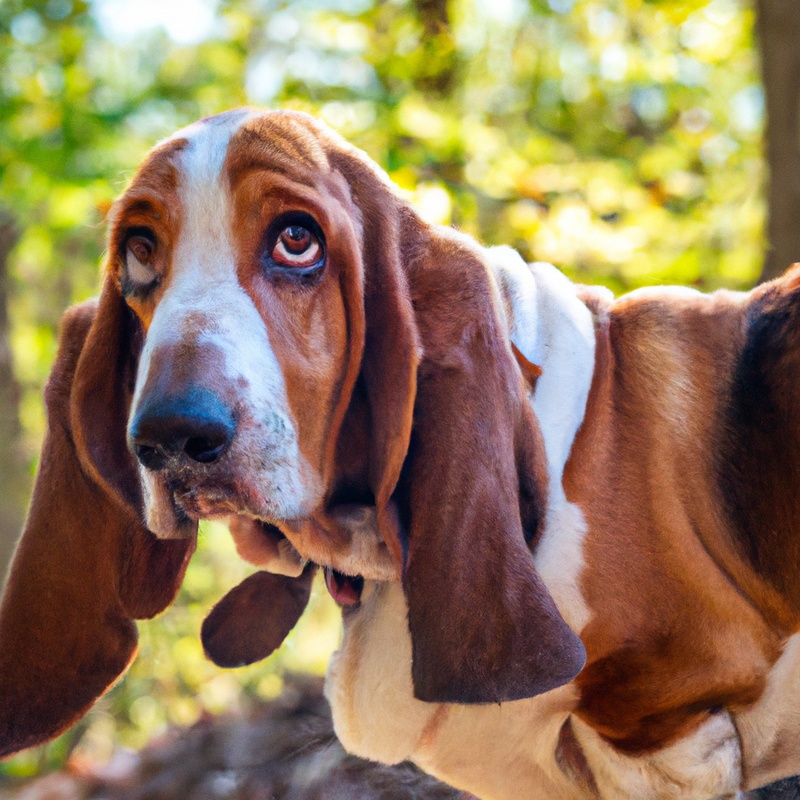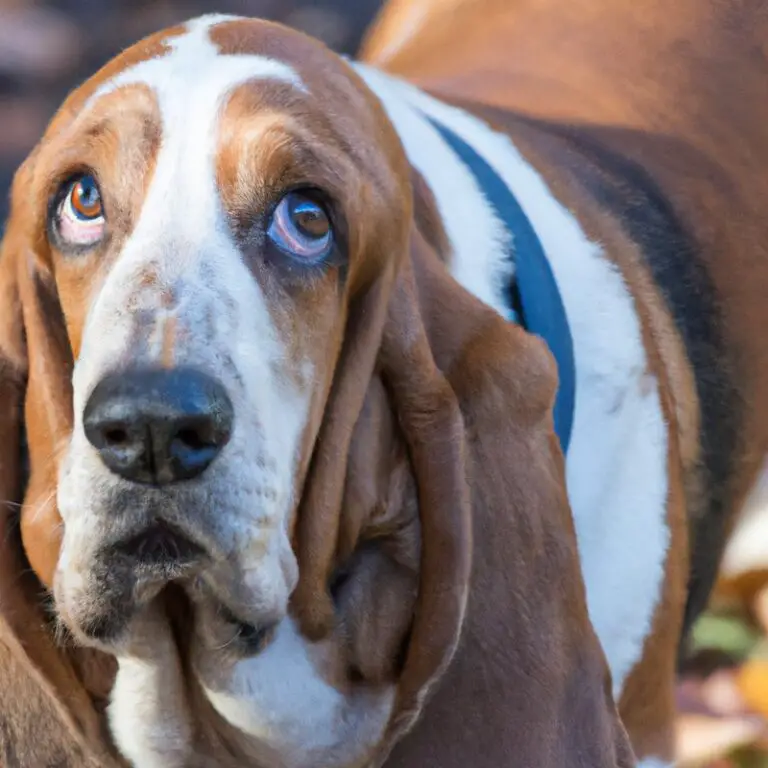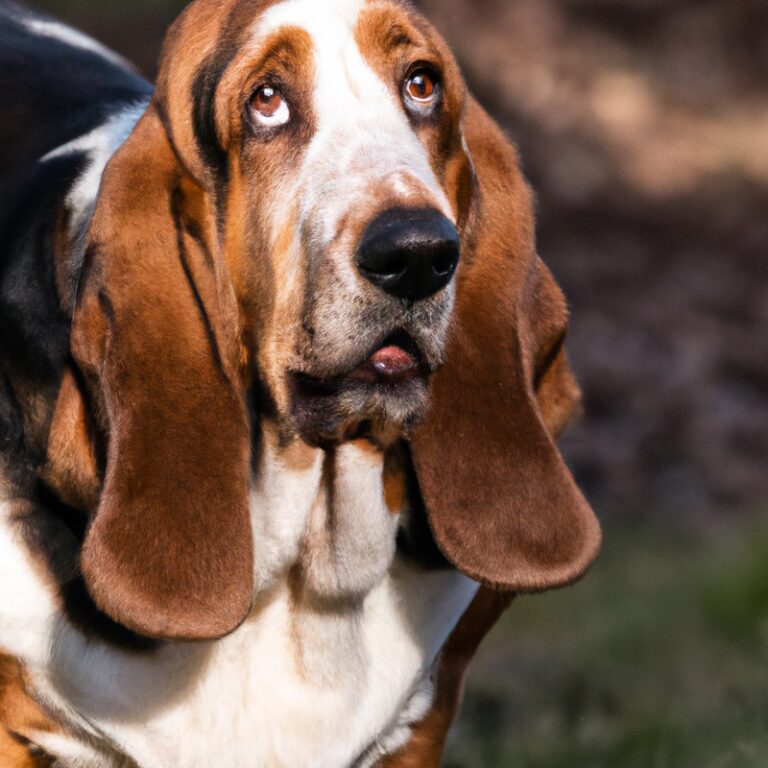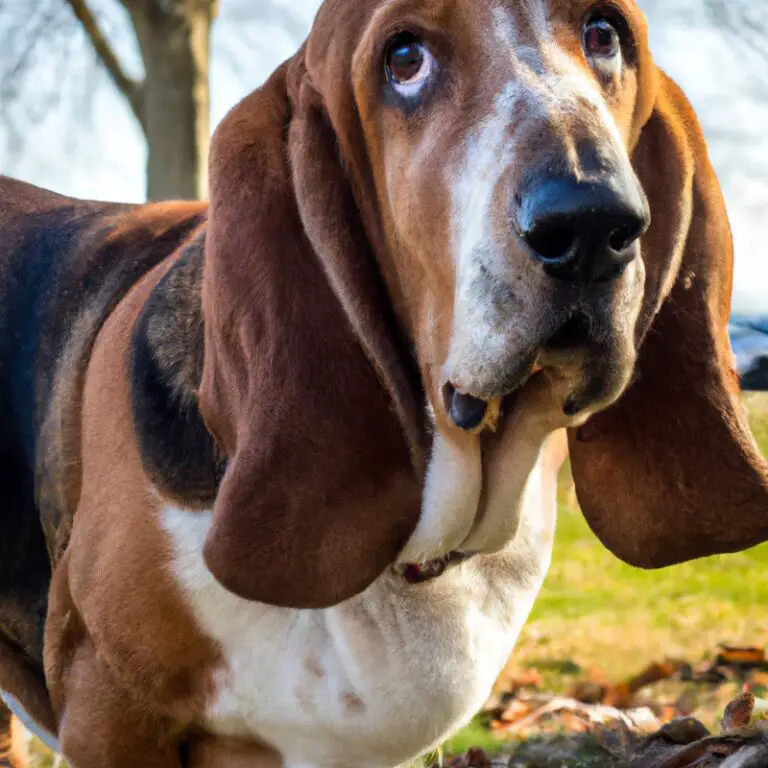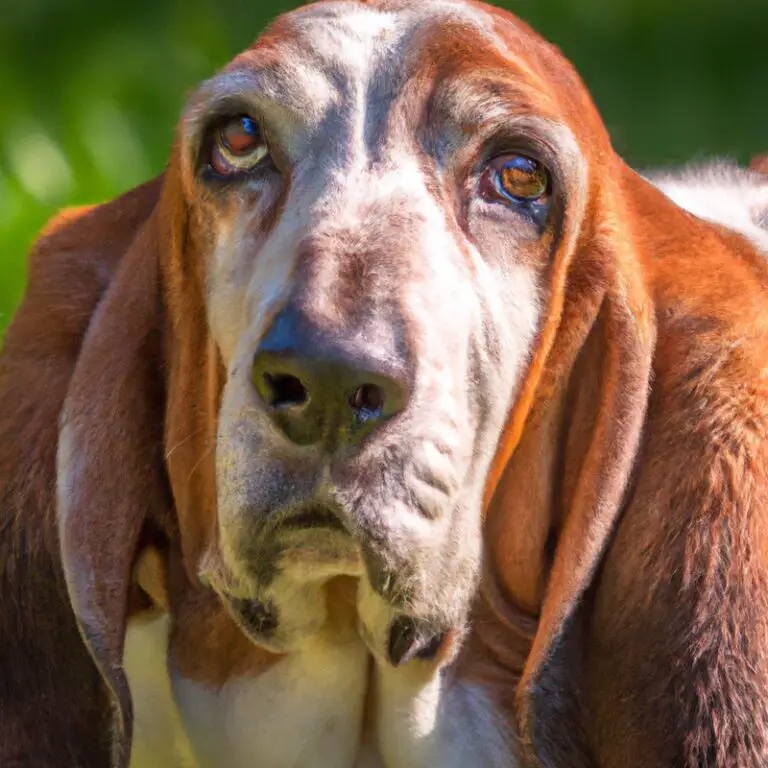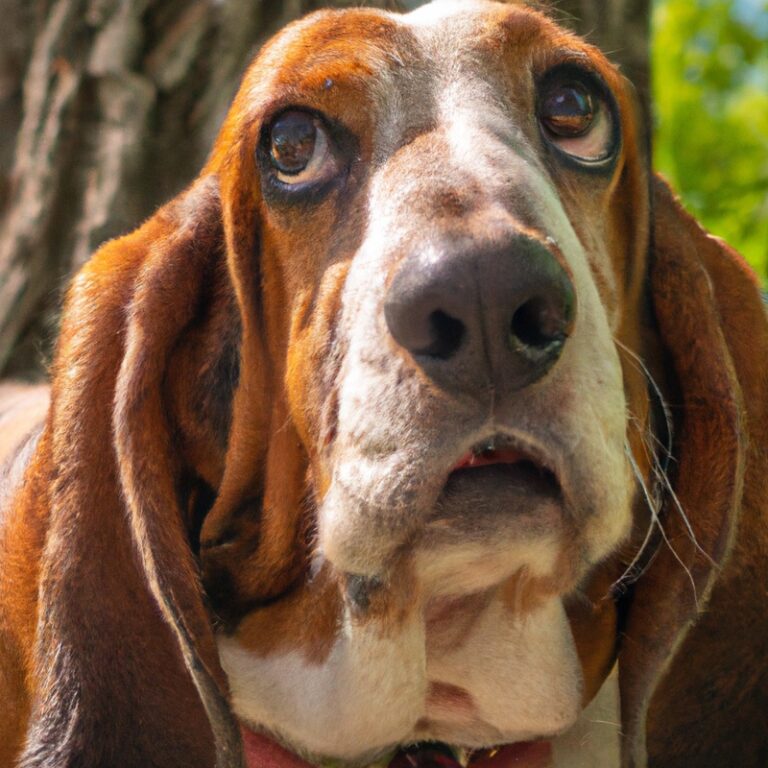Can Basset Hounds Be Trained To Be Therapy Dogs For The Elderly?
Key Takeaways:
- Basset Hounds can be trained to be therapy dogs for the elderly.
- Their friendly and gentle nature makes them suitable for providing comfort and emotional support.
- However, their stubbornness and independent streak may pose challenges during training.
- Proper socialization and consistent training are vital for their success as therapy dogs.
Can Basset Hounds, with their droopy ears and slobbery kisses, become therapy dogs for the elderly? It’s a question that tugs at the heartstrings and begs closer examination.
As an expert in therapy dog training, I’ve seen firsthand the incredible impact that these gentle and loving companions can have on the lives of older adults.
But can Basset Hounds meet the unique demands of this role? In this article, we’ll explore the characteristics of Basset Hounds, the training required, and the challenges they may face.
So, let’s grab a cup of tea and embark on this heartwarming journey to discover if Basset Hounds can be the perfect therapy dog for our beloved elderly.
| Criteria | Can Basset Hounds be trained as therapy dogs for the elderly? |
|---|---|
| Temperament | Basset Hounds are known for their friendly and gentle nature, making them well-suited for therapy work with the elderly. |
| Trainability | Basset Hounds can be trained, but they are a bit stubborn and may require additional patience and consistency in training. |
| Size | Basset Hounds are a medium-sized breed, making them suitable for living in smaller spaces often found in elderly care facilities. |
| Exercise needs | Basset Hounds have low to moderate exercise needs, which can be easily accommodated in a care facility or by elderly individuals. |
| Physical health | Basset Hounds may have certain health issues such as obesity or joint problems that need to be managed properly for therapy work. |
| Emotional support | The affectionate and loyal nature of Basset Hounds can provide emotional support to the elderly, offering companionship and reducing feelings of loneliness. |
| Noise sensitivity | Basset Hounds are generally not highly sensitive to noise, which can be an advantage in environments with potential loud noises in an elderly care facility. |
| Adaptability | Basset Hounds can adapt well to different settings and people, which is important for therapy work with the elderly. |
| Patience | Basset Hounds are generally patient dogs, making them suitable for interacting with elderly individuals who may need extra time or assistance. |
What are Therapy Dogs?
Definition of Therapy Dogs
Therapy dogs are trained dogs that provide comfort, support, and affection to people in various settings such as hospitals, nursing homes, schools, and rehabilitation centers.
These dogs have a special temperament and are trained to respond positively to different individuals, creating a calming and joyful environment.
Therapy dogs can help improve emotional well-being, reduce stress, and provide a sense of companionship to those in need.
They play a significant role in enhancing the overall well-being of individuals by bringing happiness and comfort to their lives.
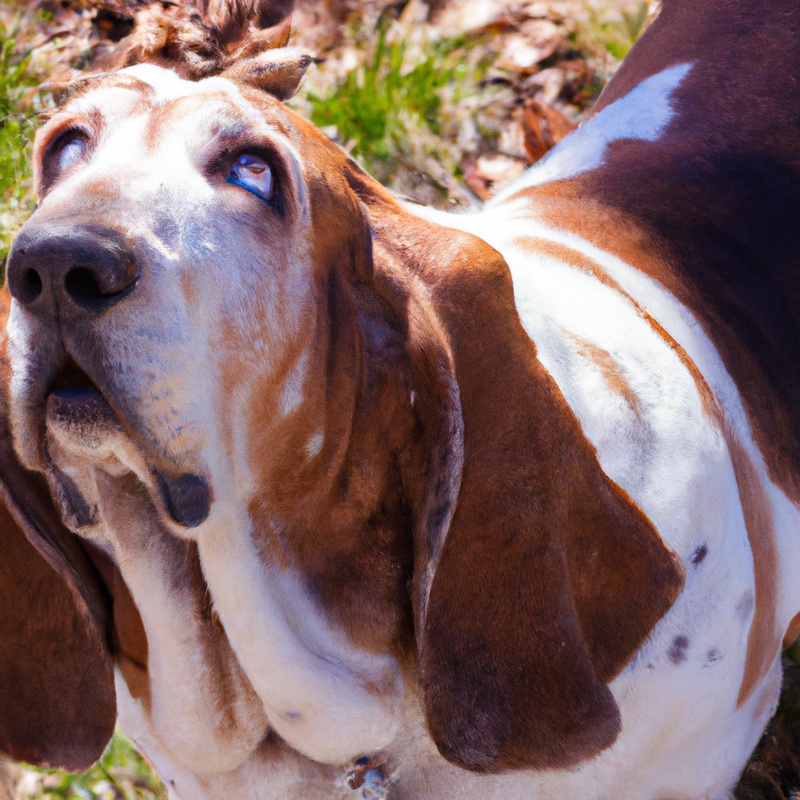
Benefits of Therapy Dogs for the Elderly
Therapy dogs can bring a range of benefits to elderly individuals.
Firstly, they provide companionship and reduce feelings of loneliness and isolation.
Interaction with therapy dogs has also been shown to lower blood pressure and decrease anxiety and stress levels.
Moreover, petting and playing with these dogs can increase physical activity and promote cognitive stimulation.
Additionally, therapy dogs can help improve mood and overall well-being, creating a positive and uplifting environment for the elderly.
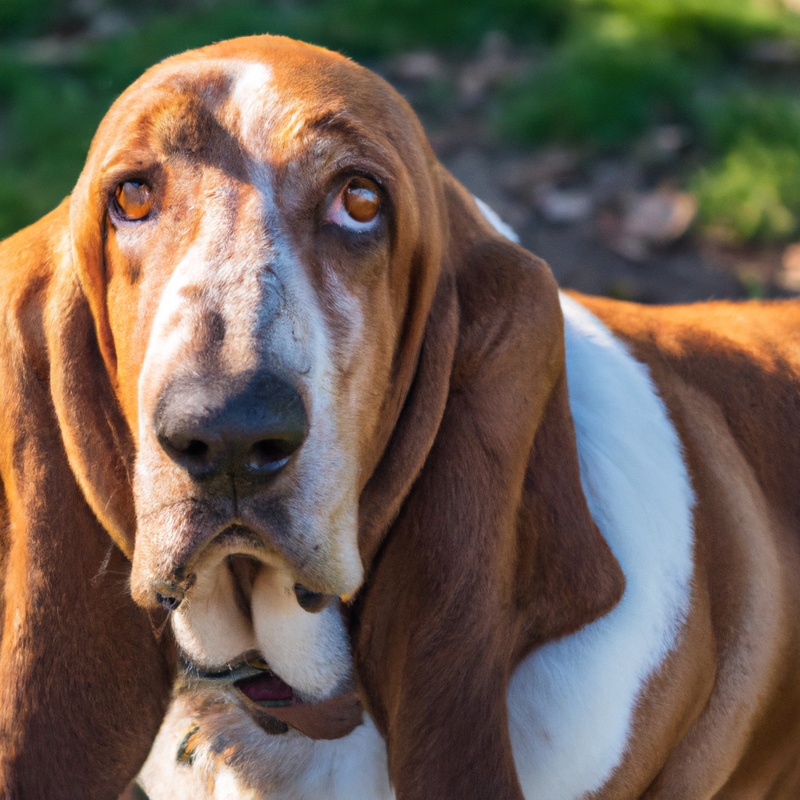
Characteristics of Basset Hounds
Physical Characteristics of Basset Hounds
Basset Hounds have distinct physical characteristics that make them easily recognizable.
They have a long, low-set body and short legs, which gives them a unique appearance.
With their droopy ears and soulful eyes, they are incredibly charming.
The breed has a thick, dense coat that comes in various colors such as tan, white, and black.
Basset Hounds are large and sturdy dogs, typically weighing between 50-65 pounds.
They also have a deep chest and a strong sense of smell, thanks to their long, powerful noses.
Overall, the physical characteristics of Basset Hounds contribute to their lovable and adorable nature.
Temperament of Basset Hounds
The temperament of Basset Hounds is generally friendly, patient, and laid-back.
They are known for their calm and easygoing nature, making them great companions for the elderly.
These dogs are typically gentle and get along well with people of all ages, including children.
They are also known to be stubborn at times, so consistent and positive reinforcement training is important.
Basset Hounds love attention and enjoy spending time with their owners, making them suitable candidates for therapy work with the elderly.
Training Therapy Dogs
Basic Obedience Training for Basset Hounds
Basic obedience training for Basset Hounds is important to ensure they are well-behaved and responsive.
Here are some key aspects of training Basset Hounds:
- Start with positive reinforcement: Use treats, praise, and rewards to motivate your Basset Hound during training sessions.
- Teach basic commands: Focus on commands like “sit,” “stay,” “come,” and “down.” This will establish clear communication with your dog.
- Be patient and consistent: Basset Hounds can be stubborn, so consistency and patience are crucial in training. Repeat commands and reinforce good behavior consistently.
- Socialize your Basset Hound: Expose your dog to different people, animals, and environments to help them become well-adjusted and confident.
- Use short training sessions: Basset Hounds have shorter attention spans, so keep training sessions short and engaging.
- Seek professional help if needed: If you encounter challenges or want to take your Basset Hound’s training to the next level, consider working with a qualified dog trainer.
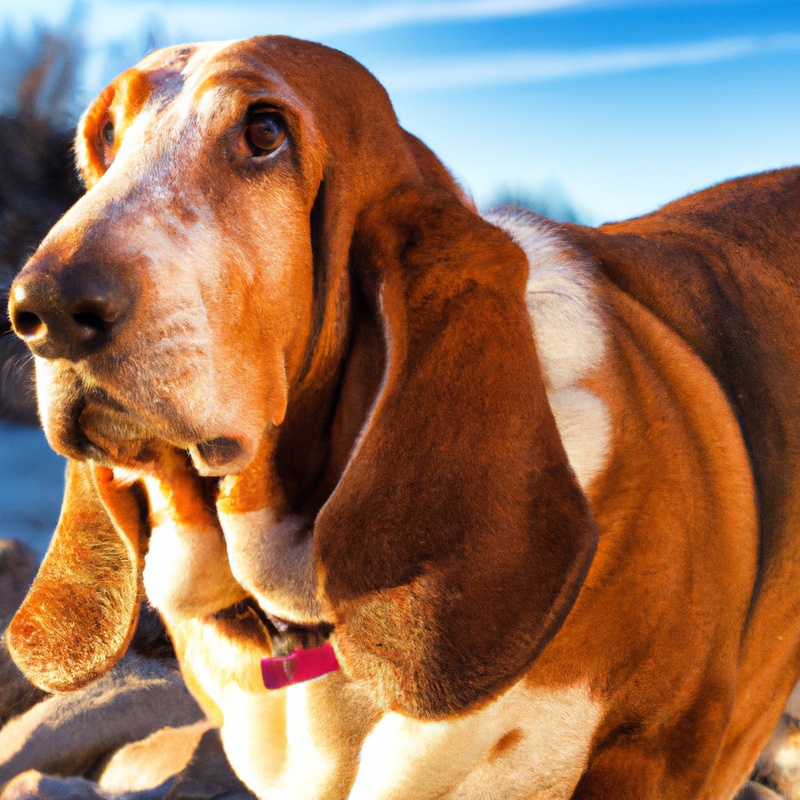
Specific Skills and Behaviors Needed for Therapy Dogs
Therapy dogs need a specific set of skills and behaviors to effectively fulfill their role. These include:
- Calm and gentle temperament: A therapy dog should be naturally calm and friendly, able to stay relaxed in various environments.
- Good obedience: Basic obedience training is essential, as therapy dogs need to respond to commands reliably.
- Socialization: Therapy dogs should be comfortable around different people, including strangers, and be able to handle various social interactions.
- Patience: They should have the ability to remain patient and calm even in challenging situations.
- Adaptability: Therapy dogs should be adaptable to different environments, noises, and activities.
- Empathy: They should possess a natural ability to sense and respond to the emotions and needs of the people they are interacting with.
These skills and behaviors are crucial for therapy dogs to positively impact the lives of the individuals they are supporting.
Can Basset Hounds be Trained as Therapy Dogs?
Evaluation of Basset Hound’s Suitability for Therapy Work
Basset Hounds can be evaluated for their suitability for therapy work based on their temperament and physical characteristics. Their friendly and calm nature makes them good candidates for therapy work, as they can provide comfort and companionship to people in need.
However, their stubbornness and tendency to follow their nose may pose challenges during training.
It is important to assess each individual Basset Hound’s personality and behavior to determine their potential as therapy dogs.
Challenges and Limitations of Basset Hounds for Therapy Work
Basset Hounds, adorable as they may be, do have some challenges and limitations when it comes to therapy work. Their strong scenting instincts can sometimes be distracting, making it harder for them to focus on their therapy tasks.
Additionally, their stubborn nature can make training more challenging, requiring patience and consistency.
Their long, droopy ears also make them prone to ear infections, which can affect their ability to engage in therapy work. However, with proper training, socialization, and care, Basset Hounds can still make wonderful therapy dogs for certain individuals and settings.
Steps to Train Basset Hounds as Therapy Dogs
Finding a Qualified Trainer or Program
When looking for a qualified trainer or program to train your Basset Hound as a therapy dog, it’s important to do your research and find someone with experience in this specific field. Look for trainers who have worked with therapy dogs before and have a good reputation.
Ask for recommendations from other dog owners or contact therapy dog organizations for referrals.
Take the time to meet with potential trainers and ask questions about their methods and training approach to ensure it aligns with your goals and values. Finding the right trainer can make all the difference in your dog’s success as a therapy dog.
Socialization and Exposure to Various Environments
Socialization and exposure to various environments are essential for training basset hounds as therapy dogs. By introducing them to different people, places, and situations, they learn to remain calm and focused in unfamiliar settings.
It allows them to become comfortable and adaptable, which are crucial qualities for therapy work.
Taking them on walks, visits to parks, and introducing them to other animals and noises will help them become well-rounded and confident in different environments. Regular socialization and exposure will ensure that they are ready to provide comfort and support to the elderly.
Building Positive Associations and Reinforcing Good Behavior
Building positive associations and reinforcing good behavior are key aspects of training Basset Hounds to be therapy dogs for the elderly. I focus on creating a positive and supportive environment during training sessions.
I use rewards such as treats and praise to reinforce desired behavior.
This helps the Basset Hound associate training with positivity and encourages them to repeat the desired behavior. Consistency and patience are crucial in building these positive associations and reinforcing good behavior.
Positive reinforcement is a powerful tool in training therapy dogs and helps them become well-behaved companions for the elderly.
Certification and Registration for Therapy Dogs
Requirements for Therapy Dog Certification
To obtain therapy dog certification, there are a few key requirements that must be met. First, the dog must have completed basic obedience training and demonstrate good manners in various settings.
Second, they must pass a behavioral evaluation to ensure they are well-suited for therapy work.
Additionally, dogs must be up to date on vaccinations and be in good physical health. Lastly, handlers may need to complete training or education specific to therapy dog work.
It’s important to research and contact organizations that offer therapy dog certification to understand their specific requirements and application process.
Organizations that Certify Therapy Dogs
There are several organizations that certify therapy dogs. These organizations ensure that therapy dogs meet certain standards and have the necessary temperament and behavior to provide comfort and support.
Some well-known organizations include:
- Therapy Dogs International (TDI: TDI offers certification for therapy dogs and their handlers. They require dogs to pass a temperament test and adhere to specific guidelines during their therapy visits.
- Alliance of Therapy Dogs: This organization provides certification for therapy dogs and evaluates their behavior, obedience skills, and interactions with people. They also offer liability insurance for therapy dog teams.
- Pet Partners: Pet Partners offers certification for therapy animals, including dogs. They have a comprehensive evaluation process that assesses the animal’s behavior, training, and suitability for therapy work.
These organizations play a crucial role in ensuring that therapy dogs are well-trained and qualified to provide emotional support to those in need. If you’re interested in certifying your dog as a therapy dog, consider reaching out to one of these reputable organizations to learn more about their certification process.
Tips for Elderly Individuals Interested in Having a Therapy Dog
Importance of Assessing Individual Needs and Abilities
Assessing individual needs and abilities is essential when considering therapy dogs for the elderly.
Every person has unique requirements and limitations, so it’s crucial to find a dog that matches those needs.
For instance, some elderly individuals may need a therapy dog that requires minimal exercise, while others may benefit from a more active companion.
Furthermore, assessing individual abilities helps determine whether the person can handle certain tasks involved in caring for a therapy dog.
This evaluation ensures a successful and fulfilling partnership between the elderly individual and their therapy dog.
Choosing the Right Dog for the Elderly
Choosing the right dog for the elderly is an important decision that requires careful consideration. Here are a few tips to help make the process easier:
- Size: Opt for a smaller dog that is easier to handle and less likely to cause accidents or injuries.
- Energy level: Look for a dog with a moderate energy level. While some exercise is important, it’s also essential to find a dog that doesn’t require excessive amounts of physical activity.
- Temperament: Consider a calm and friendly breed that is known for being good with people, especially seniors. A dog with a gentle and patient nature is typically a great choice.
- Trainability: Choose a breed that is known to be trainable and has a good disposition for learning new commands and behaviors.
- Maintenance: Consider the grooming needs of the breed. Dogs with shorter coats or minimal shedding may be more manageable for elderly owners.
Remember, every individual’s needs and preferences are unique, so it’s crucial to take your specific circumstances into account when selecting the right dog.
Responsibilities and Care of a Therapy Dog
As a therapy dog owner, I understand the importance of taking care of these amazing animals.
The responsibilities and care of a therapy dog include providing regular exercise, feeding them a balanced diet, and ensuring they receive appropriate medical care.
It’s also crucial to engage in regular grooming, such as brushing their coat and cleaning their ears.
Additionally, therapy dogs need proper socialization and ongoing training to maintain their skills and behavior.
Lastly, it’s essential to give them love, attention, and a safe, comfortable environment to thrive.
Final Verdict
While each dog is unique and there are no guarantees, Basset Hounds have the potential to make wonderful therapy dogs for the elderly. Their gentle nature, patience, and affectionate temperament make them well-suited for providing comfort and companionship.
However, it is important to consider the specific needs and abilities of both the dog and the elderly individual before making a decision.
With proper training, socialization, and certification, Basset Hounds can bring joy and therapeutic benefits to the lives of the elderly. However, it is crucial to consult with a qualified trainer or program and carefully assess the suitability and limitations of the breed.

